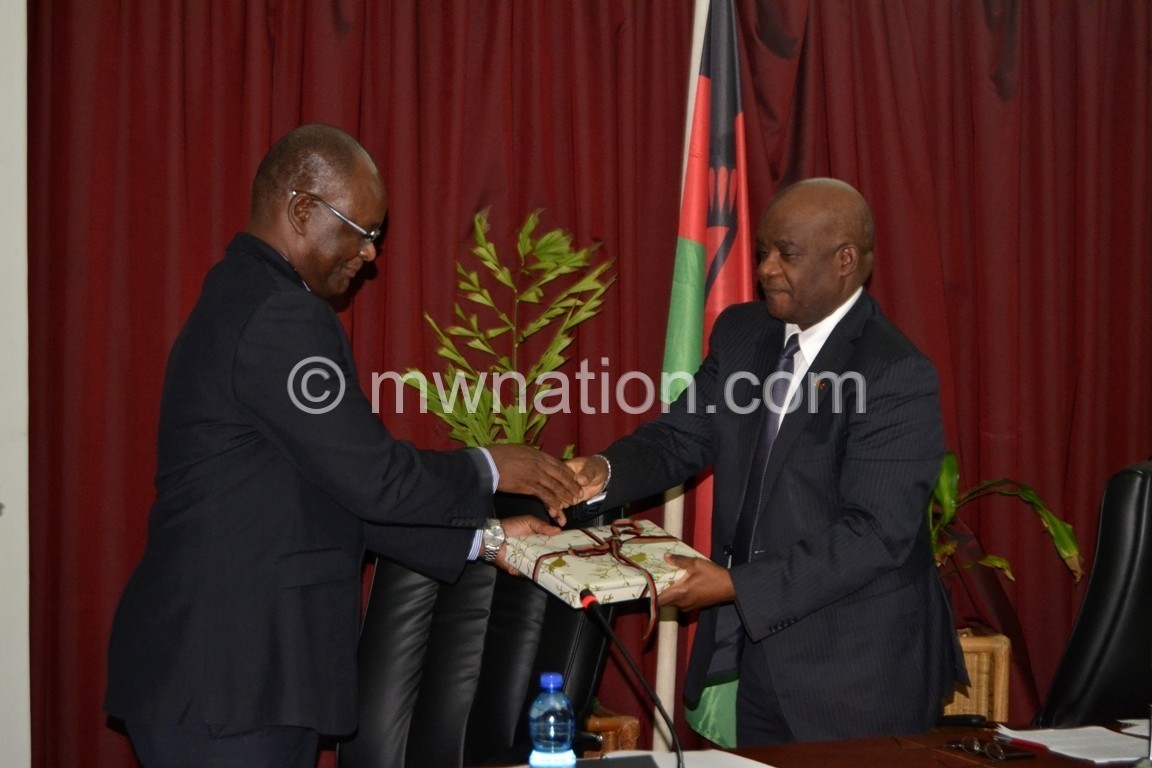Report faults MHC for Area 18 water contamination
A report by the National Task force on the Area 18A water contamination saga has faulted Malawi Housing Corporation (MHC) for the incident which occurred on July 18 last year.
The report, which has since been submitted to President Peter Mutharika through Chief Secretary in the Office of the President and Cabinet Lloyd Muhara, noted that MHC failed to manage the sewer lines which were within its jurisdiction.

Presenting the report to Muhara at Capital Hill in Lilongwe yesterday, taskforce chairperson Rexie Chiluzi noted that MHC was hesitant to act on the issue when it occurred until the Parliamentary Committee on Natural Resources and Climate Change gave them an ultimatum to repair the broken sewer lines as landlords responsible for such repairs.
Said Chiluzi: “The task force found that water was indeed contaminated due to a blockage of a sewer lines and that MHC, being landlord, is responsible for the management of sewer lines in Area 18 housing estate; hence, they needed to take care of the system timely.”
The task force findings support those of a joint Parliamentary Committee on Agriculture, Irrigation, Natural Resources and Climate Change, which took place soon after the incident last year.
The committees gave MHC an ultimatum to repair the broken sewer lines.
The national task force, which was instituted by Mutharika, noted that while they established that some households were indeed affected by the contaminated water, there are conflicting figures of the number of affected households. It has since concluded that the right figures for the affected are those by Lilongwe Water Board (LWB).
“There are conflicting figures on those affected; LWB said 83, Malawi Human Rights Commission [MHRC] said 150 and the lawyer representing the said affected says 260. The figure by LWB is realistic,” said Chiluzi.
The task force has since recommended a complete overhaul of the Area 18 sewer system to replace the old pipes which are prone to breakage due to their lifespan and the capacity they were designed for.
“The sewer system in the area was designed for a small population and with the increase in population, the system is failing to cope and needs expansion. The drainage system is in a dilapidated state and needs urgent attention,” reads the recommendation in part.
Speaking after receiving the report, Muhara said it has given a clear picture of what happened in Area 18.
“The report has also ably covered various aspects and stakeholders who played a role in whatever happened in Area 18. It has also detailed recommendations which, if implemented, would avoid a recurrence of what happened,” he said.
The 1995 Waterworks Act provides that water boards should own and manage sewer systems but without the master plan, which is still with MHC, it was difficult for LWB to manage the sewer system.
When the issue was first reported, there was a blame game between Lilongwe City Council (LCC) and MHC as to who was responsible for the management of the sewer.
But LCC said it only manages the main sewers while MHC is responsible for small sewers connecting to the main sewers.
The report has, therefore, called for concerted efforts from the public and various organisations involved to work together to find a lasting solution and maintain good hygienic practices and also avoid disposing of waste in open manholes.
It further urges LCC to intensify refuse collection so as to avoid blockages of the sewer systems.





